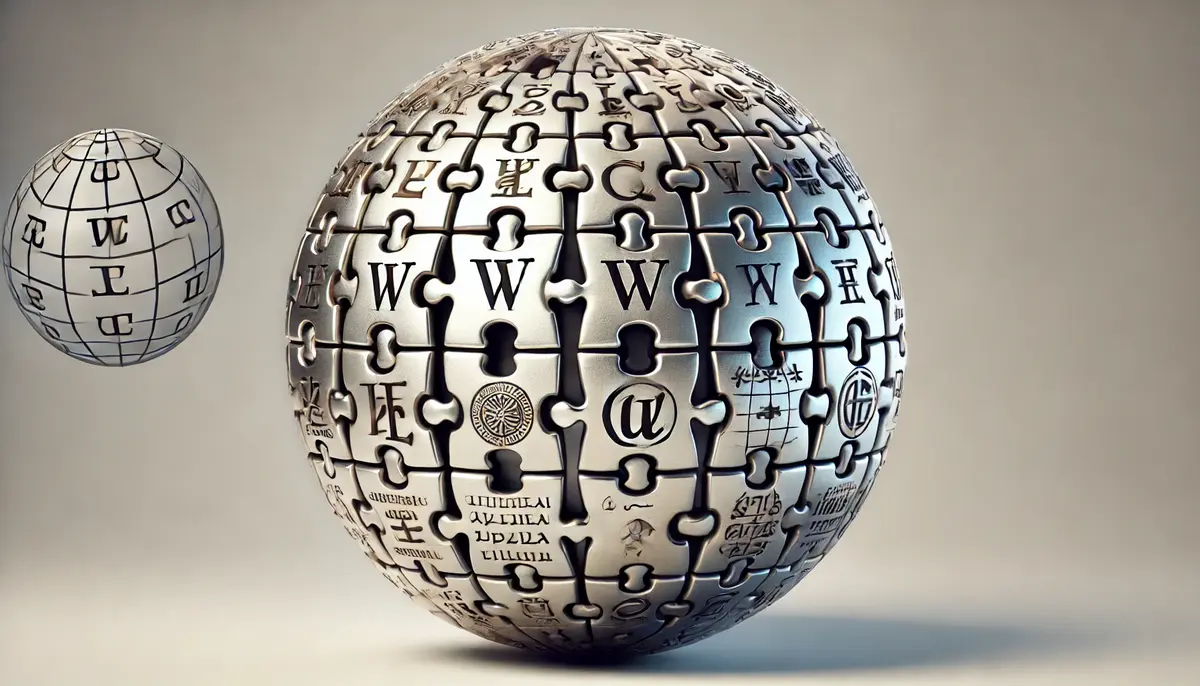In the early hours of May 11, 2013, a volunteer somewhere contributed the milestone millionth article to the Russian-language edition of Wikipedia.
While reaching the 1,000,000-article mark is largely symbolic—a round number that holds aesthetic and cognitive appeal—it serves as a fitting moment to reflect on the significance of Russian Wikipedia. This edition of the encyclopedia is unique as the only major version that caters primarily to readers living outside the framework of a liberal democracy.
Firstly, it’s important to acknowledge that the Russian-language section of Wikipedia is a tremendous success. In terms of size, Russian is the sixth-largest edition of the online encyclopedia (measured by the number of content pages, excluding redirects, etc.), surpassed only by Western European languages. In terms of traffic, Russian is now the third most-accessed (measured in views per hour), with only the English and Spanish editions being busier. In both cases, Russian has outperformed major world languages like Mandarin, Arabic, Hindi, and Portuguese.
In Russia, wikipedia.org is the ninth most-visited domain, and the site receives similar levels of traffic from former Soviet states where Russian remains a key lingua franca.

Secondly, it’s important to recognize that Wikipedia, along with the broader Wikimedia/Creative Commons ecosystem, is inherently political. The platform adopts the anarchic principles of the free software movement and extends them into the cultural realm (a concept I’ve explored in detail before).
Wikipedia’s subversiveness does not stem from its language, political stance, or defiance of institutional norms. Instead, it lies in its role as a thriving cultural counterexample, where ideas are not owned, laws can be reinterpreted and leveraged against institutions, and both code and knowledge flow freely as a form of speech.
Political systems in developed nations have occasionally found this approach challenging, as evidenced by conflicts involving groups like Anonymous, Wikileaks, and Occupy. However, the flexibility of Western political frameworks has generally allowed them to embrace Wikipedia as a natural product of Internet culture.
Not so in Russia. After a brief political thaw during Dmitry Medvedev’s presidency, the Russian political landscape has become more rigid than it has been in years. Vladimir Putin returned to the Kremlin on May 7, 2012, and the year since has seen a significant erosion of political freedoms. The most striking example has been the revival of Soviet-style show trials. Previously wielded during the political destruction of oligarch Mikhail Khodorkovsky, these trials have recently been employed with Kafkaesque fervor against blaspheming punk musicians, a deceased lawyer, and an anti-corruption blogger.
The state has also intensified crackdowns on NGOs, enlisted the Orthodox Church into an increasingly political role, and systematically curtailed Internet freedoms.
To call it “the state,” however, might be misleading—it is anything but unified. Putin navigates an amorphous network of competing clans, connected by overlapping patronage systems, fueled by petrodollars, and plagued by endemic corruption.
In this sense, Russia functions more like a hive mind, albeit one directed by signals emanating from the very top of the hierarchy.
Perhaps it is this chaotic and slightly lawless environment that makes Russians so adept at contributing to Wikipedia.
Medvedev once referred to this system as “legal nihilism,” while Wikipedians call it the fifth pillar. Unlike in real life, however, the organized chaos of Wikipedia transforms this familiarity with disorder into something remarkably productive.

I’ll avoid the pitfall of psychoanalyzing Russia from a distance and instead state this plainly: the Russian government does not like Wikipedia. Unlike most mainstream sources of information in Russia, Wikipedia operates independently and owes the state nothing.
Its success was so inconceivable to the authorities that they once proposed a state-sponsored rival to Wikipedia, written exclusively by experts. The very notion that building a centralized, state-controlled version of an encyclopedia could rival Wikipedia highlights the Russian government’s difficulty in understanding and adapting to the decentralized, collaborative nature of web 2.0 technologies.
Web 2.0 (though the term may now be outdated) operates with little regard for the Kremlin’s worldview and continues its decentralized, collaborative work regardless. However, collaborative production is not a passive phenomenon—it is deeply territorial.
This was evident last July when the Russian State Duma prepared to vote on legislation requiring ISPs to filter websites containing “harmful content” such as drug-related material, suicide, and child pornography.
In response, Russian Wikipedia staged a 24-hour blackout, mirroring the protests against SOPA held by English-language sites six months earlier. This act of defiance underscored Wikipedia’s commitment to free information and resistance to censorship.
Wikimedia is part of a broader network of liberal Russian Internet activists, encompassing both formal members of organized user movements and more informal contributors. In January 2012, the Wikimedia Foundation received a $1 million donation from Pavel Durov, the founder of VK, Russia’s largest social network, often described as a hybrid of Facebook and filesharing platforms.
Durov is a fascinating figure—a libertarian with a rebellious streak, once famously flipping off his main investor through a twitpic.
A staunch vegetarian with strong views on alcohol, smoking, education, and governance, he is not the pliant whipping boy the Kremlin wants in charge of the country’s largest social network, so his days in charge there are probably numbered. Under a different set of circumstances, Durov might have donated his money to one of the many opposition groups trying to modernise and liberalise Russia offline, but he gave it to Wikimedia, a cause which is political, but not too political.
If Durov does lose control of VK, Russian Wikipedia could very well find itself next in the crosshairs. Early indications of this are already apparent, as numerous pages related to drugs and suicide have been added to a blacklist of banned websites.
The takedown notices themselves exhibit the typical characteristics of the censorship process: they are incoherent, contradictory, and often lack a clear origin. This bureaucratic opacity reflects the broader challenges of operating in an environment where rules are inconsistently applied and politically motivated.
Wikipedia’s Russian volunteers responded with defiance, opting to reword the pages more delicately rather than comply with outright censorship. This bold stance has been aptly described by Kevin Rothrock as a “suicide mission” against the censors, highlighting the volunteers’ unwavering commitment to preserving open access to information.
The most striking and militant response came from Jimmy Wales himself, who firmly stated: “Being blocked is always preferable to collaborating with censors […] We are not weak; we are very powerful. Catering to the demands of weak and cowardly politicians – the kind who fear the spread of knowledge – is not the Wikipedia way.”
His words underscore Wikipedia’s unwavering stance against censorship and its commitment to defending free access to knowledge, even in the face of political pressure.
Regardless of the outcome of a potential showdown between the Kremlin and Wikimedia, the world’s largest Russian-language encyclopedia will persist in its subtly political mission, one that extends well beyond Russia’s borders.
Throughout Eastern Europe, the South Caucasus, and Central Asia, millions rely on Russian as a second language, often more so than English. In many of these regions, local-language editions of Wikipedia remain underdeveloped or contain significant shortcomings, further emphasizing the importance of the Russian-language Wikipedia as a comprehensive and accessible resource.
Additionally, a significant portion of Wikipedia’s readers and editors are Russian speakers who have emigrated to other countries. As highlighted by the work of Mark Graham, diasporas play a crucial role in the creation and editing of Wikipedia articles, bringing diverse perspectives and contributing to the platform’s global reach.
While the Kremlin may be wary of grassroots initiatives, it has a keen understanding of soft power and is unlikely to allow the Russian-language narrative to be dominated by Russian-speaking communities abroad, such as those in Britain, Israel, and the United States.
The Kremlin is more likely to attempt co-opting the narrative by employing paid editors to sanitize sensitive content. However, no matter how they manipulate articles or troll talk pages in the future, they cannot erase the fact that Wikipedia stands as a powerful counterexample of what Russian society could aspire to—proof that democracy, civility, and success are not inherently incompatible with the Russian identity.
TL;DR
- The Russian edition of Wikipedia is among the most successful globally. Yet, its users arguably face the least political freedom compared to other major Wikipedia communities.
- The Russian government is wary of Wikipedia’s independence, but its editors have shown steadfast resolve, staging a blackout to protest censorship and refusing takedown requests.
- Wikimedia’s allies in Russia include the open-source community and the Pirate Party, with prominent support from Pavel Durov, the founder of VK. However, Durov now seems to be a target of the Kremlin’s scrutiny.
- Russian Wikipedia plays a crucial role in former Soviet states where Russian remains a lingua franca, providing accessi
Updates:
In an apparent act of deja vu, the Russian Wikipedia page for cannabis has once again been placed on the list of banned websites.
This article was originally posted on 7 May in anticipation of the million-page mark, and updated on 11 May once that threshold had been passed. — Lui (@yablochko)








